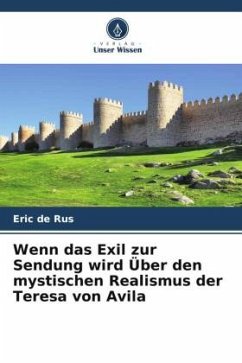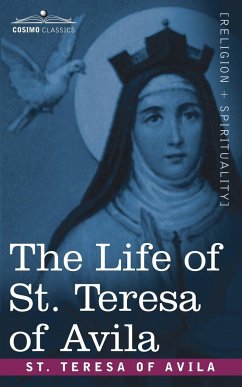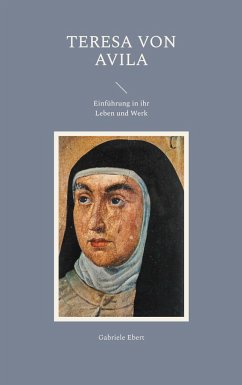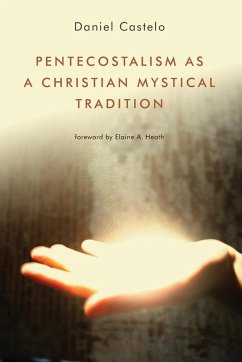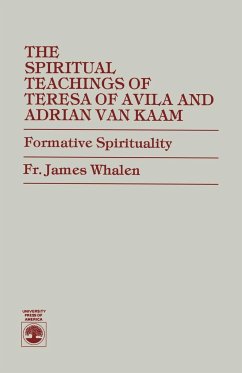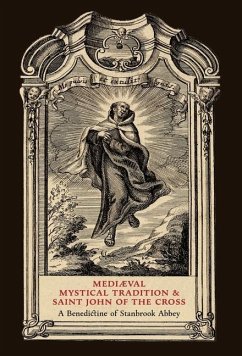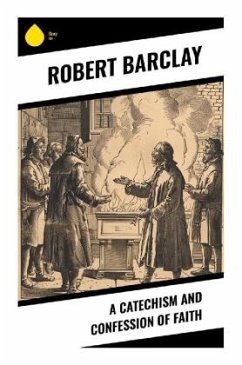
When exile becomes dispatch On the mystical realism of Teresa of Avila
Versandkostenfrei!
Versandfertig in 6-10 Tagen
27,99 €
inkl. MwSt.

PAYBACK Punkte
14 °P sammeln!
The spiritual experience of Teresa of Avila is carried, in the musical sense of the word, by an inner theme captured in the famous formula: "Everything passes, God does not change". The life of the saint is a variation on this theme, and its actual variation. By listening to this variation, the main movements of which can be found in her autobiography, The Book of Life, we sought to understand how Madre realistically and fruitfully assumed the relationship between the Absolute and the relative. What is the anthropological significance of the Theresian experience of the desire for God? We propo...
The spiritual experience of Teresa of Avila is carried, in the musical sense of the word, by an inner theme captured in the famous formula: "Everything passes, God does not change". The life of the saint is a variation on this theme, and its actual variation. By listening to this variation, the main movements of which can be found in her autobiography, The Book of Life, we sought to understand how Madre realistically and fruitfully assumed the relationship between the Absolute and the relative. What is the anthropological significance of the Theresian experience of the desire for God? We propose to answer this question by showing that the metaphysical structure of human desire constitutes it essentially as an orientation towards the Infinite. An orientation that assumes the tension between the Absolute and the relative, discovering for us a creative way of being in the world and of living.



